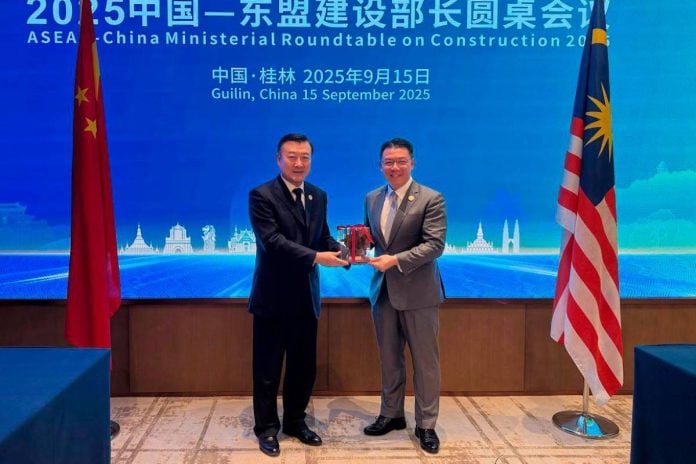KUALA LUMPUR: Malaysia and China have agreed to strengthen cooperation in developing smart city pilot projects with plans to establish smart city command centres in Malaysia’s second-tier cities such as Ipoh and Seberang Perai.
The initiative was discussed during a bilateral meeting between Housing and Local Government Minister Nga Kor Ming and China’s Minister of Housing and Urban-Rural Development Ni Hong held in conjunction with the ASEAN-China Ministerial Roundtable on Construction 2025 in Guilin.
Nga stated these projects will serve as living laboratories for testing smart technologies, energy-efficient designs and community-centric housing models.
“By collaborating with China, we can foster mutual learning and adapt proven solutions to local contexts, from smart home integration and digital infrastructure to AI-driven housing management, data-driven urban services and affordable housing models for middle-and low-income groups,“ he said.
Malaysia will draw lessons from China’s advanced urban platforms such as Hangzhou’s City Brain and Shenzhen’s Smart City Data Platform to establish smart city pilot projects.
The pilot projects include deployment of smart infrastructure such as energy-efficient systems, home automation, smart metering, and IoT-based building management.
Digital connectivity for residents will feature integrated apps for facilities booking, security, maintenance, and community engagement.
Green features such as solar energy, waste separation systems and water-saving technologies will be incorporated into the projects.
Social innovation in housing design will include elderly-friendly and family-centric elements to address diverse community needs.
During the meeting, Nga invited China to participate in the ASEAN+3 Real Estate Conference 2026 which will welcome South Korea and Japan as strategic partners for the first time.
The four-day event will be held from July 29, 2026, at the Malaysia International Trade and Exhibition Centre in Kuala Lumpur.
Nga proposed an exchange training programme between Malaysian and Chinese government officials to enhance skills in urban planning and public policy.
“The exchange programme will provide a valuable platform for our government officials to share expertise and learn best practices,“ he added.
He emphasized that collaboration should not end at knowledge-sharing alone but be followed through with project implementation in Malaysia.
As the UN-Habitat Assembly president, Nga welcomed China to play a more active role in advancing the global urban agenda through financial contributions and policy endorsements.
He encouraged China to support the integration of the New Urban Agenda into the UN Framework Convention on Climate Change.
The document is scheduled to be launched at the Fourth Ministerial Meeting on Urbanisation and Climate Change on November 11, 2025, in conjunction with the 30th Conference of the Parties in Belém, Brazil.
“Urban challenges are no longer confined within national borders,“ Nga stated.
He emphasized that advocating the New Urban Agenda requires a truly global approach where countries work hand in hand to integrate sustainability and inclusivity into urban development.
Nga added that Malaysia stands ready to work with China and the international community to ensure that no one and no place is left behind in the pursuit towards the Sustainable Development Goals and the 2030 Agenda. – Bernama








